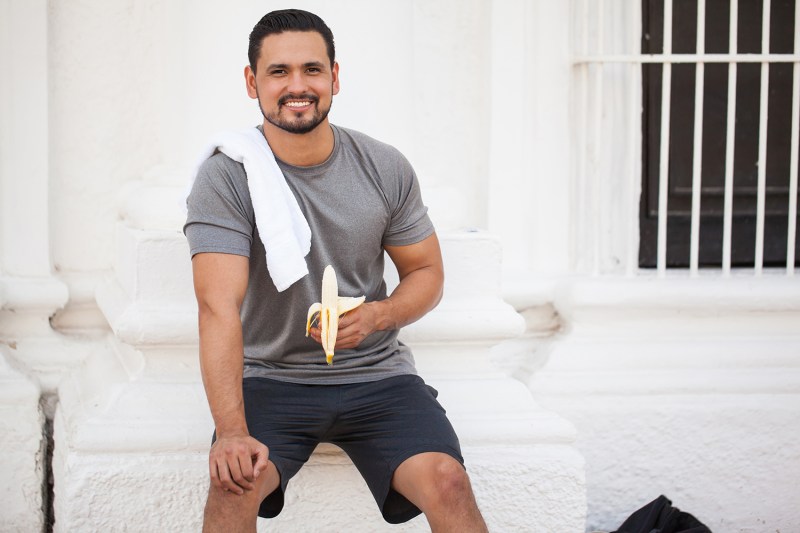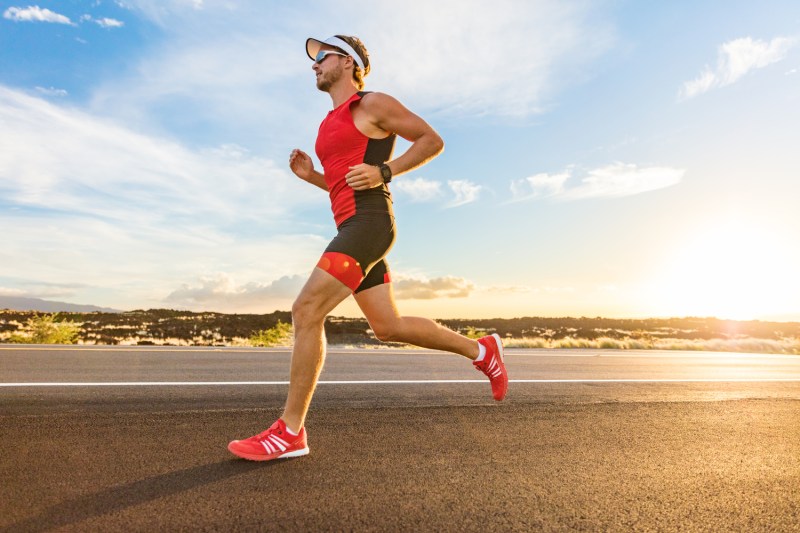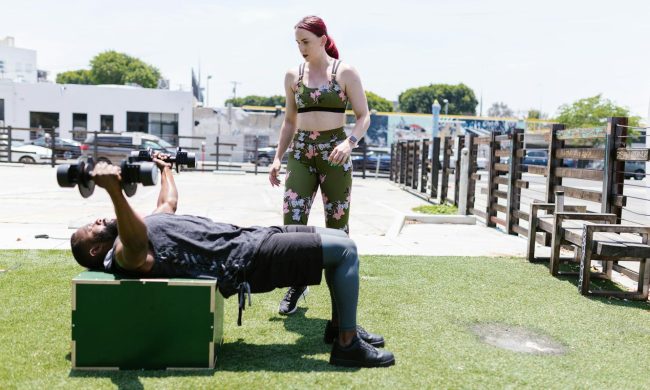
Novice runners who are just starting to run receive all sorts of advice from experienced athletes about what running shoes to buy, what to eat, how to breathe while running, and more. Some of the most passionate exercise advice runners tend to give out pertains to eating before running. Do you run on an empty stomach to reap the benefits of fasted cardio workouts, or do you load up on calories and energy to help sustain your workout? Striking that perfect balance is the key to a great workout, and it’s different for everyone.
The advice for running after eating may not be entirely accurate. The human body is a lot more complex than we ever thought, and the best plan for your body is to do what feels right to you. Let’s explore how to find out what that means and how long to wait after eating to run.

Is it OK to exercise after eating?
There’s no real scientific evidence that something bad can happen when you’re exercising on a full stomach. However, digestion requires an extraordinary amount of energy from the body, and running at the same time could reduce your perfect workout. For example, the typical lunch includes 400-600 calories, containing proteins, carbohydrates, fats, and other materials.
The energy required to digest this type of meal could cause you to feel woozy running or just unsettled. If you push yourself too hard, your body could reject your lunch altogether. The reason is your body has limited resources. When you eat, those resources head to your digestive tract. When you exercise, your body removes those resources from digestion and diverts them all to your muscles. Trying to make that happen together could be uncomfortable.

Can I run on a full stomach?
Whether you are running at night or in the morning, the best advice is to stick to a small snack of no more than 200 to 300 calories. Gain a boost of energy with simple carbohydrates and easy-to-digest materials. For most people, this is enough to provide fuel for running without causing discomfort.
Wait 30 minutes to an hour before running if you’ve had a small meal or at least two hours after a big meal. That might be the easiest way to ensure you can perform your best on your runs. Until you get a better idea of what your body can do, taking the general advice is best.

The running method matters
For beginning runners or short-distance runners, it may not be as crucial to fuel up before or during a run. Short distances — less than a mile, for example — may not tax your energy reserves as much as a full marathon would.
As you advance in your abilities, you might need to build a more robust fueling system before you run. As you extend your distances or times, your snacks and small meals need to evolve as well. It’s still best to stick to small meals and wait an hour before heading out.
If you’ve been running for a long time, you may choose a different path. You know your body, strengths, and capabilities. You may be someone who can run after eating with few to no consequences. It’s essential to listen to your body’s cues. If you eat and don’t experience discomfort, you don’t need to worry about the traditional advice.

Foods to eat before a run
A light snack can help get you on your feet and give you the energy to complete your workout. These snacks should have carbohydrates and a small amount of protein. Some examples:
- Small banana with a tablespoon of peanut butter (or other nut butter)
- Small yogurt with seasonal fruit
- Bowl of oatmeal
- Small fruit smoothie with ricotta cheese
- Crackers and cheese

Foods to eat after a run
Once you’ve completed your run, your body needs to replace the energy so it can rebuild muscle. Foods that provide complete nutritional requirements to help your body repair and rebuild. Take the time to cool down, and when you’re ready, you can prepare:
- Grilled chicken with roasted vegetables
- 8-12 ounces of chocolate milk
- Peanut butter and jelly sandwich
- Pita chips or vegetables with hummus

Tips on eating and drinking for your run
Customizing your running approach can take some experimentation. Here are a few things you might consider.
Can I train my body to eat before a run?
If you’re an endurance athlete or aspire to be, training your body to fuel up during a run can keep you going the distance. This can take time and experimentation. Mid-run fuels include easy-to-digest carbohydrates. Many runners use sports drinks or energy gels.
Can I drink water during my run?
You will need fluids and hydration during a run — too much, however, and you could experience cramps and nausea. Listen to your body’s cues, but the general advice is to drink half to a full cup of water every half hour or so during your run.

Troubleshooting your run
If you experience GI discomfort during your runs, there can be a number of different causes.
- Dehydration: If you don’t prepare before your run, your body may experience discomfort due to a lack of hydration. Drink plenty of fluids up to an hour before you begin your run.
- Too much fiber: Eating too much fiber the night before to the morning of a run can cause cramping. Eat a balanced diet instead.
- Overheating: If you feel nausea while you’re running, temperature could be the culprit. Stop running immediately and seek shade and fluids.

Staying fueled the right way
Overall, the best thing for you to do is listen to your body’s cues as you experiment with how best to stay fueled. The tips above are an excellent starting point for ensuring that you don’t experience discomfort as you complete your runs.
With these tips and your own good judgment, you can fuel your body before the run. You’ll have more satisfying runs with less discomfort. Find your perfect snack and keep your running skills in top shape.

Do the rules of eating and drinking apply to weightlifting?
Because your body is more stationary during weightlifting, food and water consumption are a little less of a concern, and the odds of you experiencing any GI discomfort are minimal. The small meals we suggested earlier for consuming before running do apply to weightlifting as well, and you want to eat a high-protein source within an hour or two after your lifting session is over.
During your workout, you won’t need to worry about eating things like energy gels like you may with long runs. If your workout is lasting two hours or less, it is very likely that whatever you ate before you started exercising will be able to sustain you. Just be sure to stay hydrated throughout.



